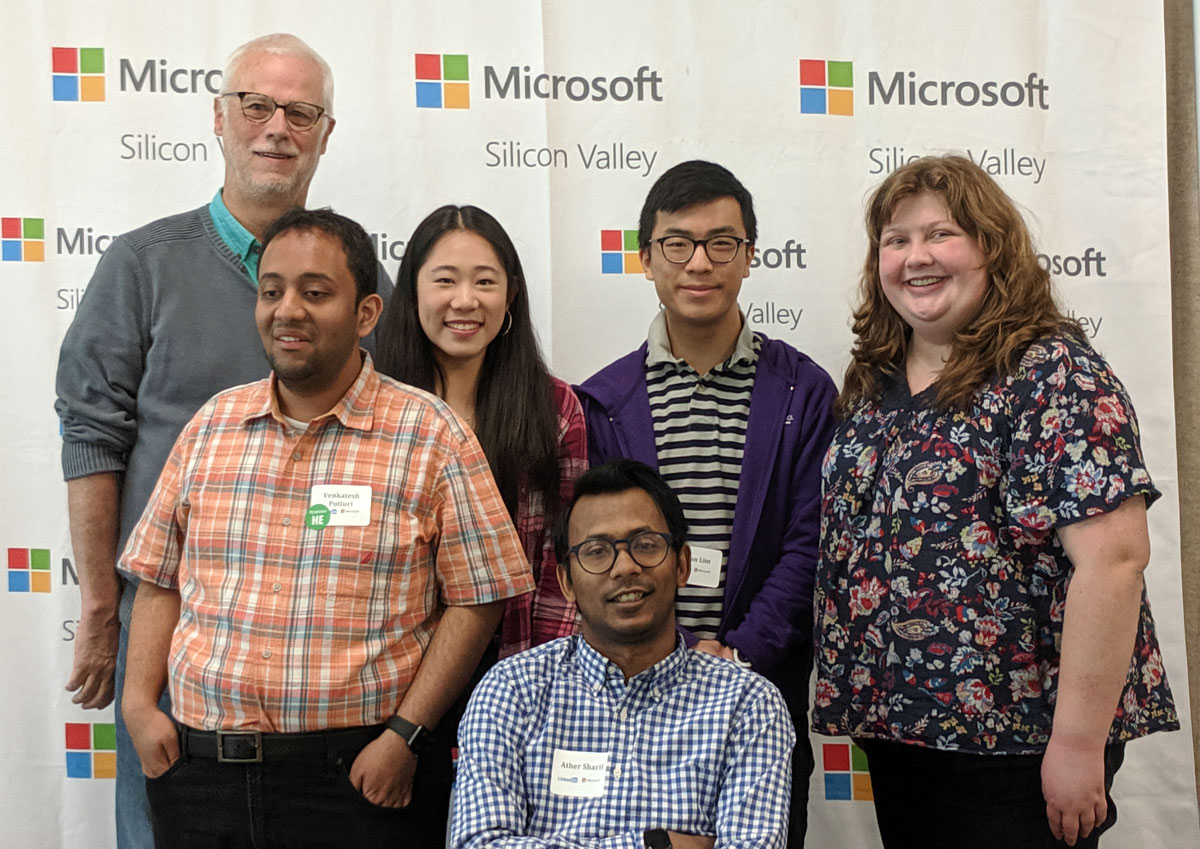March 14, 2024 A new, free, and community-sourced online book helps Computer Science educators integrate accessibility topics into their classes. Teaching Accessibility provides the foundations of accessibility relevant to computer science teaching and then presents teaching methods for integrating those topics into course designs. The editors are Alannah Oleson, a postdoctoral scholar and co-founder at the UW Center for Learning, Computing, and Imagination (LCI), CREATE and iSchool faculty Amy Ko, and Richard Ladner, CREATE Director of Education Emeritus. You may…
Category: Richard Ladner news articles
Deep Gratitude to Wobbrock, Ladner & Caspi
June 13, 2023 The CREATE community thanks three of our founding leaders for their energy and service in launching the center as we embark upon some transitions. “CREATE would not be where it is today without the vision, passion, and commitment that Jake, Richard, and Anat brought to their work leading the center,” says CREATE Director Jennifer Mankoff. Co-Director Jacob O. Wobbrock: From vision, to launch, to sustainable leadership It was back in June 2019 that Jacob O. Wobbrock, CREATE’s…
Richard Ladner named AAAS Fellow
Congratulations to CREATE Director for Education Richard Ladner on being named a Fellow of the American Association for the Advancement of Science (AAAS)! He is among 564 new fellows from around the world elected in 2021 for distinguished achievements in science and engineering. Ladner was recognized for his advocacy and inclusion efforts for people with disabilities in computer science and related fields. His work has included development of numerous tools to perform specific tasks, including translating textbook figures into formats…
Perkins School touts Blocks4All for blind and low vision students
The Perkins School for the Blind — one of the most famous schools for the blind in the world — is heavy into technology for their students. Recently they touted the Blocks4All app, paired with a Dash robot, as a tool to teach block coding to blind and low vision students. “The Blocks4All app is completely accessible on the iPad with VoiceOver and Dash carries out the commands, making it easy for students who are visually impaired to know if they…
Accessible CS Education workshop focuses on inclusive experiences
Amid a global pandemic, innovative thinkers have been hard at work developing plans to improve equity in modern learning environments. The Accessible Computer Science Education Fall Workshop was held November 17-19, 2020, and jointly sponsored by Microsoft, The Coleman Institute for Cognitive Disabilities, and CREATE. Each day of the event focused on strategies to improve classroom experiences for students and faculty with disabilities. You can watch recorded sessions where speakers provided a wide range of perspectives on computer science pedagogy…
UW CREATE leadership at ASSETS 2020
UW CREATE has a large and quality presence at ASSETS 2020, the premier annual conference for accessible computing research. Drawing from three departments, University of Washington authors contributed to six papers and two posters to be presented at this year’s online conference. Three of our papers were nominated for best paper! Seven members also served in conference roles: two on the organizing committee and five on the program committee. The papers and posters span a variety of topics including input…
Richard Ladner Receives 2020 Public Service Award from National Science Board
National Science Board | August 11, 2020 Dr. Richard Ladner, CREATE’s Director for Education, has been named the 2020 recipient of the Public Service Award for an individual from the National Science Board (NSB). In recognizing Ladner, the board cited his exemplary science communication, diversity advocacy, and well-earned reputation as the “conscience of computing.” “When we think about diversity, we must include disability as part of that. The conversation about diversity should always include disability.” Richard Ladner, Professor Emeritus, University of Washington’s Paul G. Allen School of Computer Science & Engineering From…
AccessComputing shares UW CREATE’s launch and work toward accessibility
CREATE faculty are already internationally recognized for their contributions to assistive technology and accessible computing; by bringing them together under one organizational roof, CREATE will enable synergies and foster collaborations that enable faculty and students to become more than the sum of their parts.
UW students join Teach Access Study Away program

May 25, 2019 Five University of Washington students, joining a group of 25 students from 7 different universities, traveled to Silicon Valley in May 2019 to participate in the Teach Access program Study Away Silicon Valley (SASV). Professor Ladner served as one of six faculty mentors for the small group projects that participating students completed during the five days of SASV. The students visited the accessibility teams at Walmart, Google, Microsoft, Apple, Verizon Media Group (Yahoo!), and Facebook, where they learned how each of…